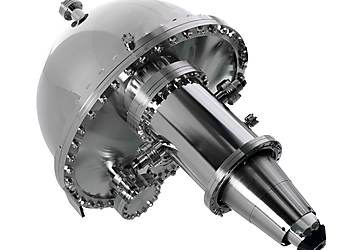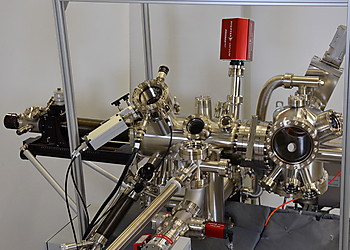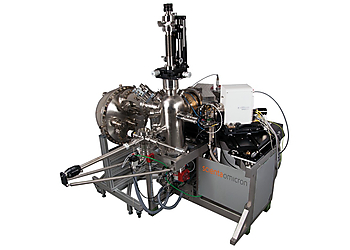News
nanoARPES on Functioning and Tunable Devices with a DA30-L

In their recent paper, A. J. H. Jones and S. Ulstrup et al. explore engineering properties of quantum materials by placing a singularity of the density of states near the Fermi energy. Using ebeam lithography for structuring and formation of electrical contacts, a device consisting of twisted bilayer graphene (twBG) on a stack of hBN and graphite was formed. The device was wire bonded to a chip package and introduced to the nanoARPES branch of the I05 beamline at the Diamond light source.
Amy Qu: Test Engineer at Scienta Omicron

Amy Qu recently joined Scienta Omicron as a Test Engineer in Taunusstein, Germany. As a PhD student at the University of British Columbia, Amy has been long time user of Scienta Omicron instrument. She was particularly fortunate to have been involved in the installation and testing process when Prof. Sarah Burke´s group commissioned a combined TESLA JT SPM/ARPES system from Scienta Omicron in 2019.
Multiprobe Prep: A Versatile UHV Module for Sample Preparation and SPM

The Multiprobe prep is the latest addition to Scienta Omicron’s range of modular UHV system platforms. It serves as both a preparation chamber for a wide range of analytical systems, and as an independent UHV system compatible with the addition of the award-winning Variable Temperature SPM (model VT SPM-XA) housed in its own bolt-on chamber.
Excillum and Scienta Omicron Japan Partner for Services and Spare Part Supply in Japan

Users of Excillum X-ray sources in Japan will have access to technical support in Japanese with experts located in the same time zone. Scienta Omicron Japan provides the services, in line with their strategy to support international advanced instrumentation deployed in Japan. Excillum and Scienta Omicron have successfully worked together for years as Excillum’s MetalJet is the X-ray source in Scienta Omicron’s HAXPES Lab system, and the knowledge and experience gained will now benefit all Excillum customers in Japan.
